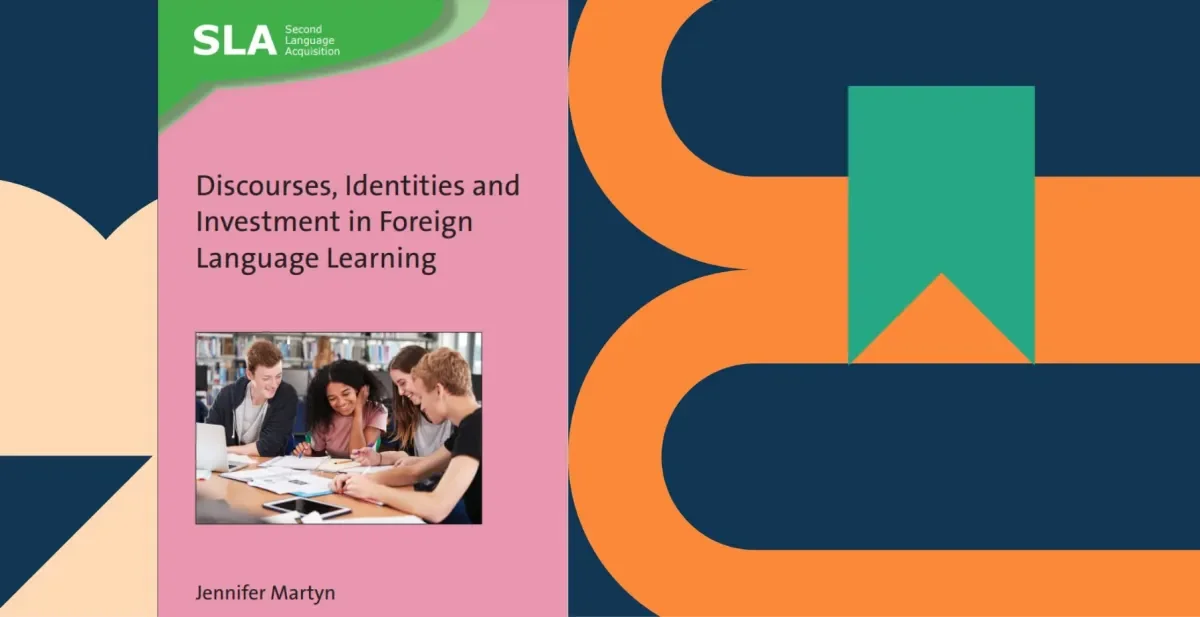

When young people say, ‘I’m not a language person’ - what does that mean?
Did you know that the number of secondary school leavers with a foreign language qualification remains low in Ireland when compared with other EU nations? Jennifer Martyn’s new book looks at why this is and questions the myths and perceptions around foreign language learning in this country such as:
- languages are difficult subjects
- language learning is a somewhat unnecessary pursuit, particularly in Anglophone contexts
- Languages are only useful for certain career paths
- language learning is something that girls and women are better at - an ideology that stubbornly endures
- some languages are better than others - to the detriment of lesser spoken languages or migrant languages
Assistant Professor with DCU’s School of Applied Language and Intercultural Studies (SALIS), Dr Martyn said: “Throughout my own language learning experience both at school and in college, as well as later as an academic, it stood out to me that there appeared to be a range of contradictory discourses surrounding language learning. It was in this context that I decided to investigate what young language learners actually think about language learning, while locating their experiences and beliefs within broader societal discourses.”
Why is it that some people say ‘I’m not a language person’?
According to Dr Martyn, while we all have a certain degree of agency in terms of whether or not to study a language or which language to study, we are all influenced by the discourses of language learning that circulate in our communities and in society, as well as the language policies and available curricula that determine our educational experiences.
Dr Martyn said: “ We exist in a binary gendered environment where things can get filtered down into two avenues - boys’ things and girls' things - and it is quite hard for young people to contest that pressure. Young people and everyone around them will say things like - I’m not a language person. This can be for many reasons - because they perceive ‘a language person’ as more likely to be female, or someone who wants to be a teacher or they believe you can’t have an aptitude for or career in both languages and STEM subjects.”
How we talk about languages is really important
Dr Martyn would like to see languages presented as something that everyone can do and everyone can learn, particularly at a younger age. To emphasise learning a foreign language as something fun, enriching and that you don’t need to be perfect at it to enjoy it or to enjoy communicating in another language. This will help young people learn to live in a globalised and interconnected world. Dr Martyn believes that 'access' to language learning should be on the agenda for researchers and policymakers, starting with primary schools and to drive the need for migrant languages to be offered in schools as well.
Benefits of learning a foreign language
- Improved memory function, enhanced problem solving skills Tolerance of difference - greater awareness and appreciation of other cultures
- Promoting social cohesion
- Promoting empathy and adaptability
- Developing transversal skills (i.e. skills that transfer across different jobs and sectors)
- Economic benefits - exciting career opportunities
Who should read this book?
This book is aimed at scholars interested in the relationship between language learning, identity and discourse, and it is hoped that those without a specific interest in language education in Ireland will benefit from the discussion of discourses that are prevalent across English-speaking contexts and beyond. More specifically, this book should be of interest to graduate students and scholars of applied linguistics, particularly those who seek to locate language choice and uptake within broader discourses. The book is available from Multilingual Matters here.
More about the author
Jennifer Martyn, BA, MA, PhD, is an Assistant Professor in the School of Applied Languages and Intercultural Studies at Dublin City University, where she currently lectures in linguistics and applied French language. She serves as a reviewer for international linguistics and applied linguistics publications and was an executive committee member of IRAAL from 2017-2022. .
About DCU SALIS
Studying languages at DCU is an exciting journey. The School of Applied Language and Intercultural Studies (SALIS) at DCU offers students an enjoyable experience for those learning Chinese, French, German, Japanese and/or Spanish with other subjects in the fields of translation, (inter)cultural studies, literature and linguistics.
